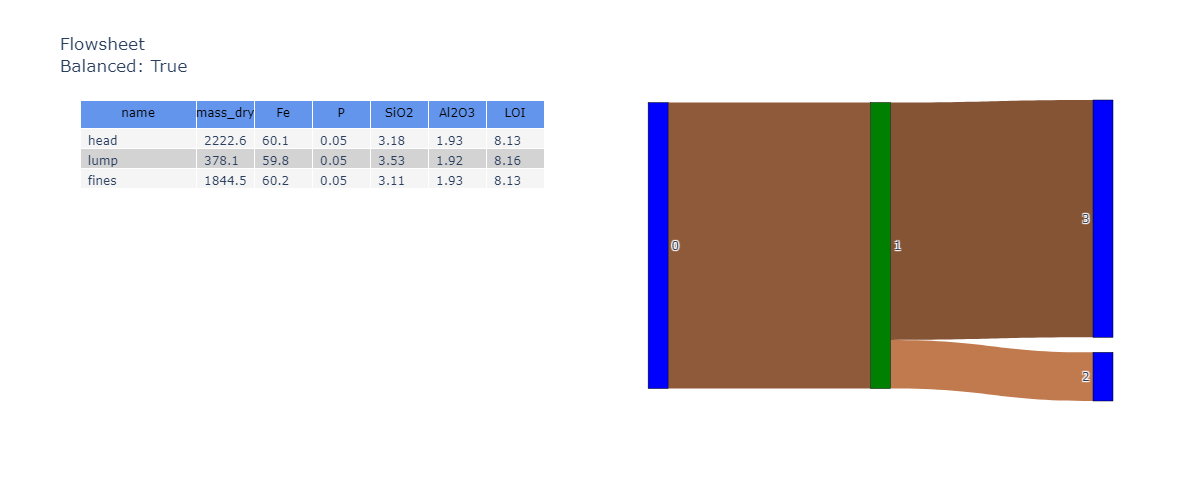MassComposition is a python package that allows Geoscientists and Metallurgists to easily work with, and visualise mass-compositional data.
Mass Composition in this context is just that - Mass and Composition. It is not Compositional Data Analysis (CoDA), since here we care more about mathematical operations like weight averaging and technically correct mathematical operations. Of course, we also need to manage moisture correctly - chemical composition is reported on a dry basis and moisture on a wet basis.
The package not only supports individual MassComposition, but collections of objects that are mathematically related in a Directional Graph (a.k.a. network or flowsheet).
Before you begin, ensure you have met the following requirements:
- You have installed the latest version of the mass-composition python package.
- You have a Windows/Linux/Mac machine.
- You have read the docs.
To install MassComposition, follow these steps:
pip install mass-composition -e .[viz,network]
Or, if poetry is more your flavour.
poetry add "mass-composition[viz,network]"
To use MassComposition, follow these steps:
There are some basic requirements that the incoming DataFrame must meet. We'll use a sample DataFrame here.
df_data: pd.DataFrame = sample_data()Create the object
obj_mc: MassComposition = MassComposition(df_data)It is then trivial to calculate the weight average aggregate of the dataset.
obj_mc.aggregate()Multiple composition analytes can be viewed in a single interactive parallel coordinates plot.
obj_mc: MassComposition = MassComposition(df_data.reset_index().set_index(['DHID', 'interval_from', 'interval_to']),
name=name)
fig: Figure = obj_mc.plot_parallel(color='Fe')
figNetwork visualisations and other plots are interactive.
For full examples, see the gallery.
To contribute to MassComposition, follow these steps:
- Fork this repository.
- Create a branch:
git checkout -b <branch_name>. - Make your changes and commit them:
git commit -m '<commit_message>' - Push to the original branch:
git push origin mass-composition - Create the pull request.
Alternatively see the GitHub documentation on creating a pull request.
This project is still in its infancy, but I'm keen to work with contributors.
If you want to contact me you can reach me at your_email@address.com.
This project uses the following license: MIT.
